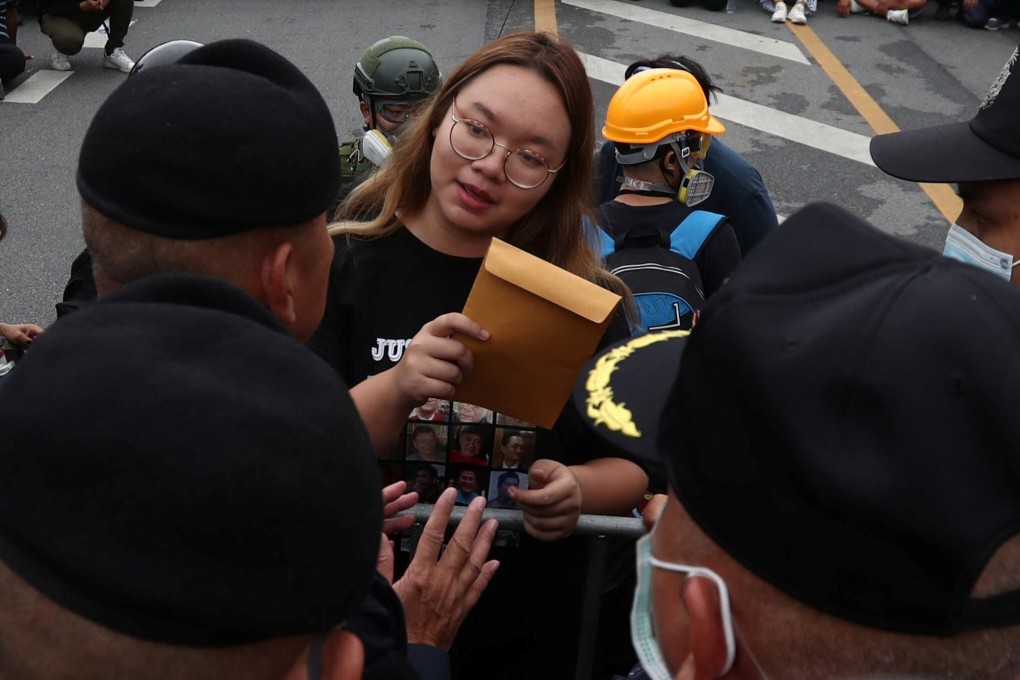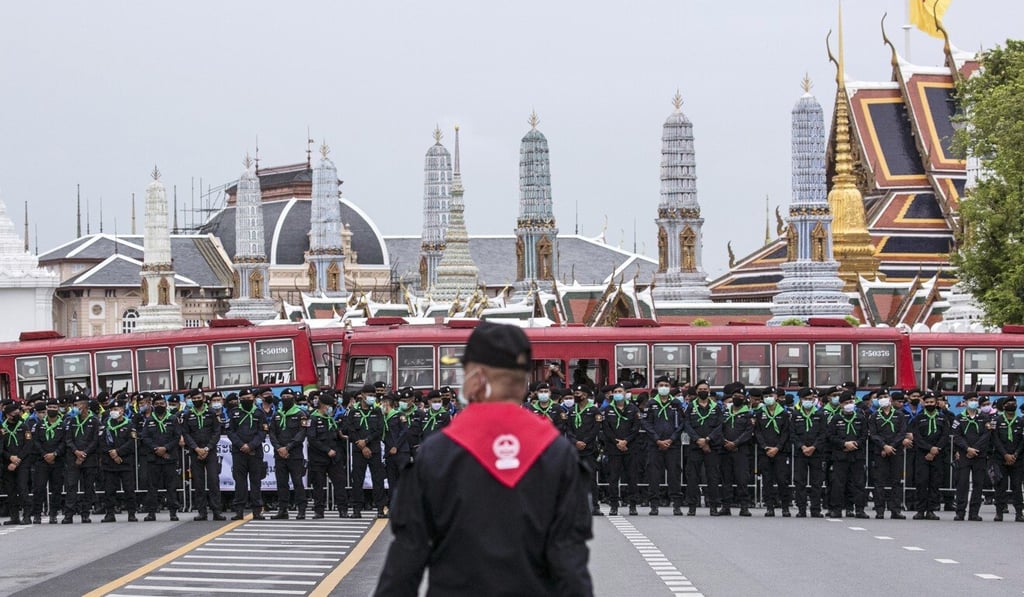Thai protesters to rally again as pressure on king, Prayuth’s government deepens
- Protesters on Sunday handed police a letter of demands calling for royal reforms, a new constitution and the resignation of PM Prayuth Chan-ocha
- Activists also installed a ‘People’s Plaque’ in a bold show of defiance in a country where the king is revered

The demonstrators submitted an open letter addressed to King Maha Vajiralongkorn which contained three major key demands: monarchy reform, the resignation of Prime Minister Prayuth Chan-ocha and his government, and the drafting of a new, more democratic constitution to replace the current one drafted under military rule.
The protesters’ letter, which also called for an end to feudalism and dictatorship, was hand-delivered to Bangkok metropolitan police chief Pakkapong Pongpetra, after they dropped their demand to meet a representative of the king’s privy council.

Activists declared victory after sending the letter. “Our greatest victory in the two days is showing that ordinary people like us can send a letter to royals,” Parit “Penguin” Chiwarak, told the crowd.
The protesters then dispersed without marching to Government House as earlier planned. Saturday’s rally attracted more than 50,000 demonstrators.